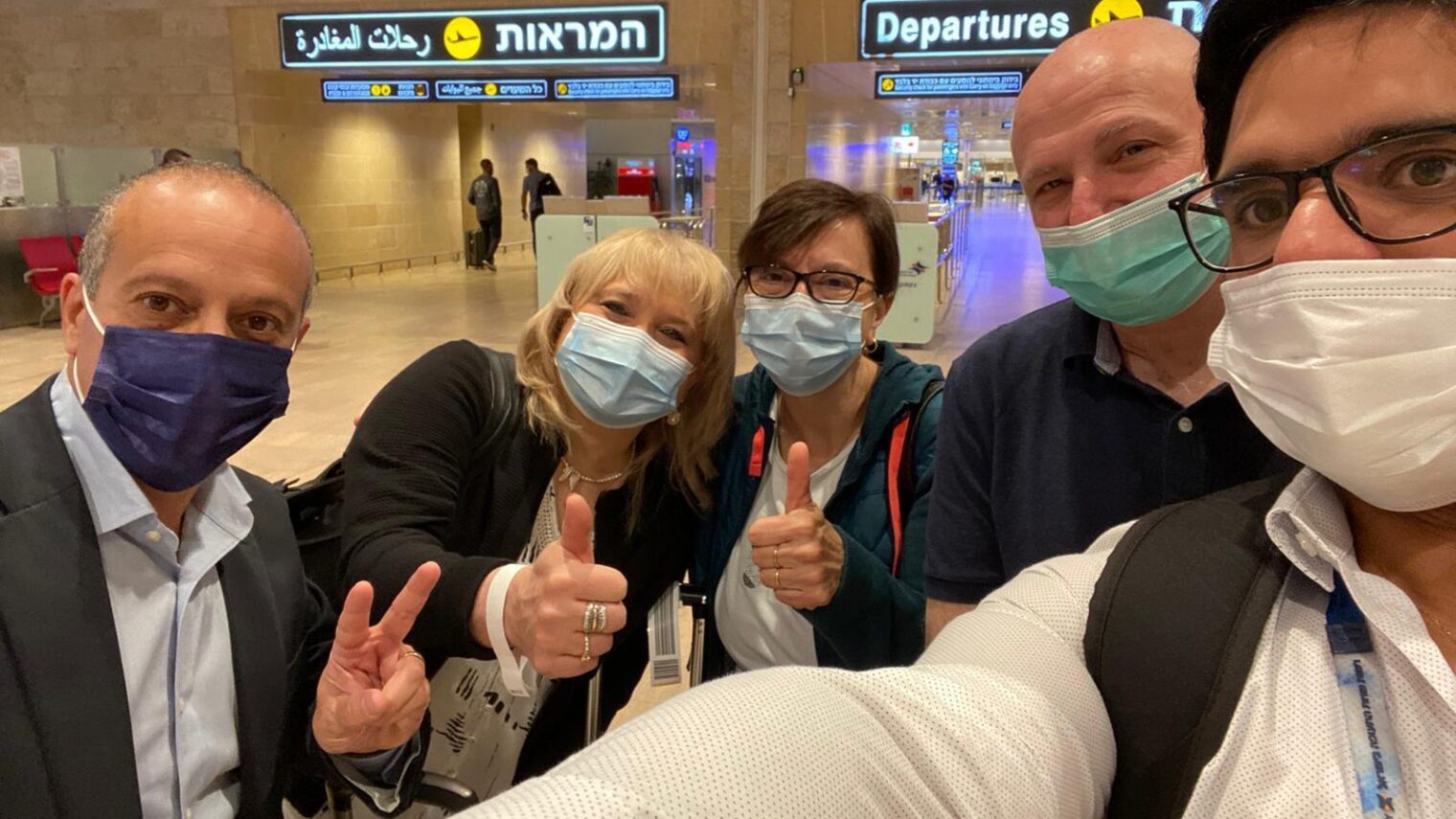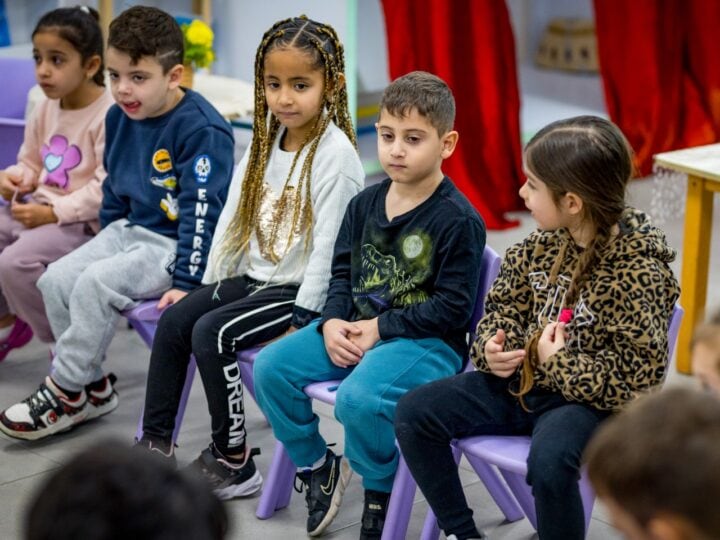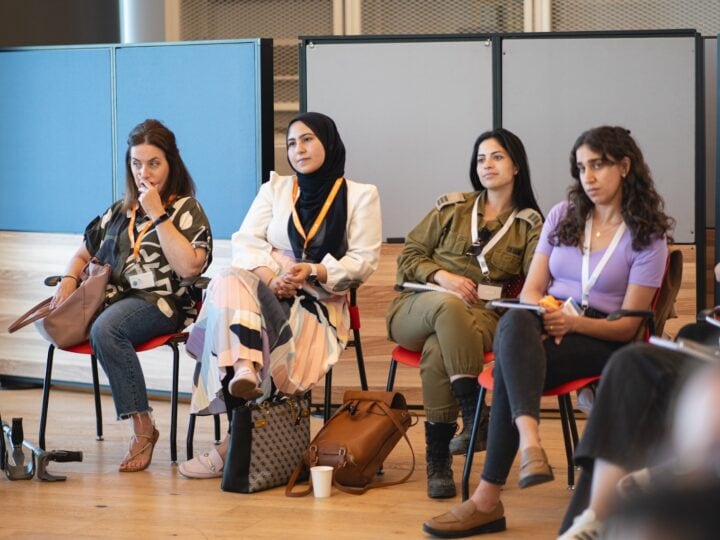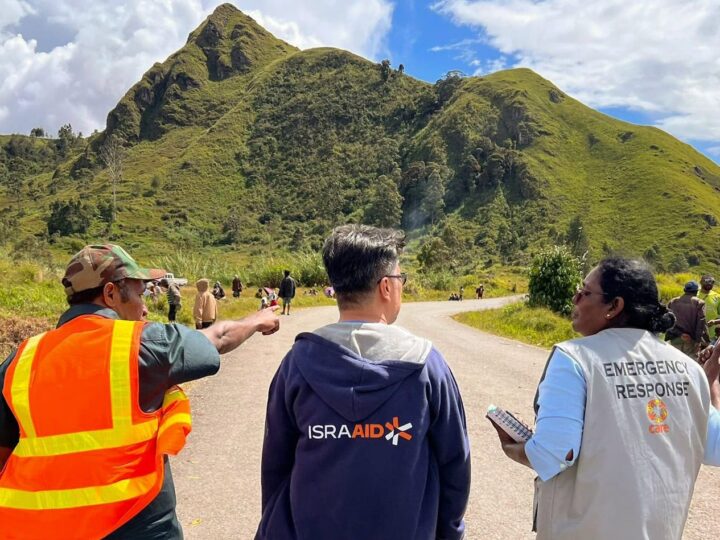A team from Hadassah Hebrew University Medical Center in Jerusalem is now in Argentina sharing its experience in dealing with the Covid-19 pandemic, at the invitation of the Argentinian government.
The team also is exploring the possibility of starting a Phase III trial of the BriLife Covid-19 vaccine in Argentina. This vaccine candidate was developed jointly by Hadassah and the Israel Institute for Biological Research.
On Tuesday, ISRAEL21c spoke with delegation head Prof. Yoram Weiss, director of Hadassah’s Ein Kerem campus, where approximately 4,500 Covid-19 patients were treated – more than any other Israeli hospital.
“It was a very long trip,” he said of the journey to Buenos Aires, which took about 36 hours. “Traveling these days is difficult and cumbersome but we came here because we think we may be of assistance.”
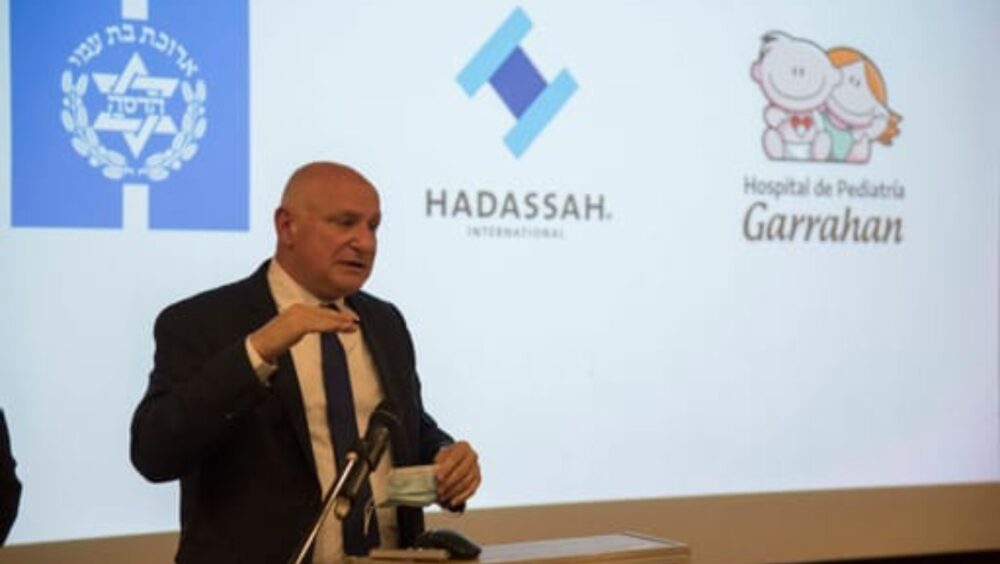
Weiss explained that Argentina is battling a second wave of Covid-19.
“This is partly due to the fact that they have a new variant and partly because they were under lockdown for many months and didn’t have a huge outbreak until now,” he told ISRAEL21c. “We don’t see panic, but people are very concerned.”
Hadassah signed collaboration agreements with two national Argentine hospitals, Garrahan and Cemic, even before the pandemic. The delegation is meeting with administrators, department heads and nurses at these hospitals to offer suggestions on how to organize the facilities to deal with the new wave of cases.
“We’re helping them in a few areas by sharing our experience,” said Weiss.
“We are providing our view of how to continue providing medical care to regular patients so that they won’t have a surge of chronic patients. We are sharing how we’ve dealt with shortages of personal protective equipment and medications. We are talking about organizing the ICU to care for Covid patients and about personal issues of working in a Covid ICU and being aware of staff burnout.”
Possible vaccine testing program
The delegation includes Dr. Sigal Sviri, director of Hadassah’s Covid-19 intensive care unit; Claudia Poggi, a nursing specialist in complex Covid-19 care; Dr. Dror Mevorach, head of one of Hadassah’s Covid units and inventor of Allocetra, an experimental treatment for the disease; Dr. Yoseph Caraco, director of Hadassah Center for Clinical Research; and Eran Zahady of the Israel Institute for Biological Research.
“The other part of our mission is exploring the possibility of bringing BriLife here for testing,” said Weiss. “We were one of leading sites doing the Phase I and II trials.”
If an Argentine-Israeli collaboration does happen, it would involve not only Phase III trials to confirm that BriLife is safe and effective, but also the industrial production of the vaccine in Argentina because Israel lacks mass production capabilities. The idea is that Argentina would be able to use the vaccine at home and export it to other countries.
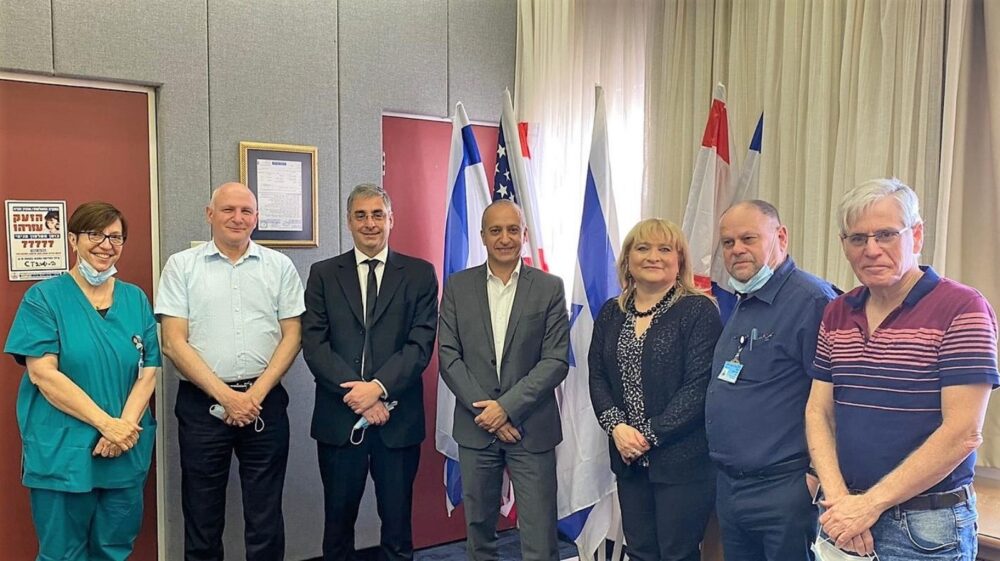
The delegation also is sharing information with hospital and governmental officials about several Covid-19 medications, including Allocetra, under development in Israel.
Weiss, who previously directed Hadassah-Ein Kerem’s surgical intensive care unit and anesthesia department, said the team would be willing to consult on any specific medical cases if they are asked to do so while in Argentina through Saturday night.
Hadassah’s mission arose from conversations initiated by Jorge Diener, executive director of Hadassah International, and the Argentine ambassador to Israel, Sergio Urribarri, based on consultations with Argentine Foreign Minister Felipe Solá and President Alberto Fernández.
“For Hadassah Medical Organization and Hadassah International, this collaboration represents the fulfillment of our most important mission, which is to build bridges among nations through health,” Diener said.
“The realization of joint projects with Argentina, which may eventually ensure the health of the population of Argentina in these critical times, will not only have an impact in both our countries, but will also generate solutions that can be applied in other parts of the world,” he concluded.




